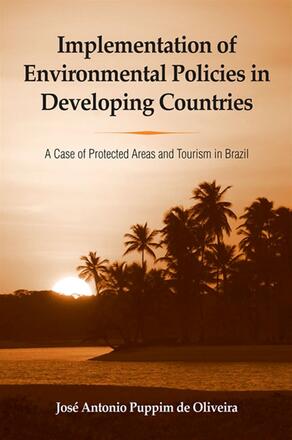
Implementation of Environmental Policies in Developing Countries
A Case of Protected Areas and Tourism in Brazil
Uses Brazil as a case study of how governments implement environmental policies despite urgent needs for economic development.
Description
Environmental policy implementation in developing countries faces a number of institutional obstacles. Using the case of protected areas and tourism development in the state of Bahia in northeastern Brazil, Jose Antonio Puppim de Oliveira explores how economic development interests tend to have a higher priority on most governments' agendas in developing countries. Government agencies often fail to implement environmental protection policies mainly because they lack political support, have insufficient resources, have underdeveloped institutional capacity, and tend to overlook the importance of cooperation at the local level. Puppim de Oliveira explains how this trend may be reversed by decentralizing policy implementation into the hands of development-oriented agencies. To make the process work, central authorities should offer incentives to ensure increased attention to environmental protection objectives in the development process. At the same time, an independent body with oversight authority should be in place to prevent development agencies from neglecting environmental concerns.
Jose Antonio Puppim de Oliveira is Associate Professor at the Brazilian School of Public and Business Administration, Getulio Vargas Foundation in Rio de Janeiro, Brazil.
Reviews
"In the clarity and precision of its arguments, this is an exemplary text. " — Environmental Conservation
"Puppim de Oliveira brings the best of the Bahia environment and culture together with brilliancy in his scientific analysis of the value of nature. " — Durval Olivieri, former Director of the Bahia State Environmental Agency
"This book makes an important contribution to the public policy literature, especially the emerging theory of environmental policy implementation. It will help international agencies and multilateral corporations make smarter investments. " — Lawrence E. Susskind, coauthor of Better Environmental Policy Studies: How to Design and Conduct More Effective Analysis